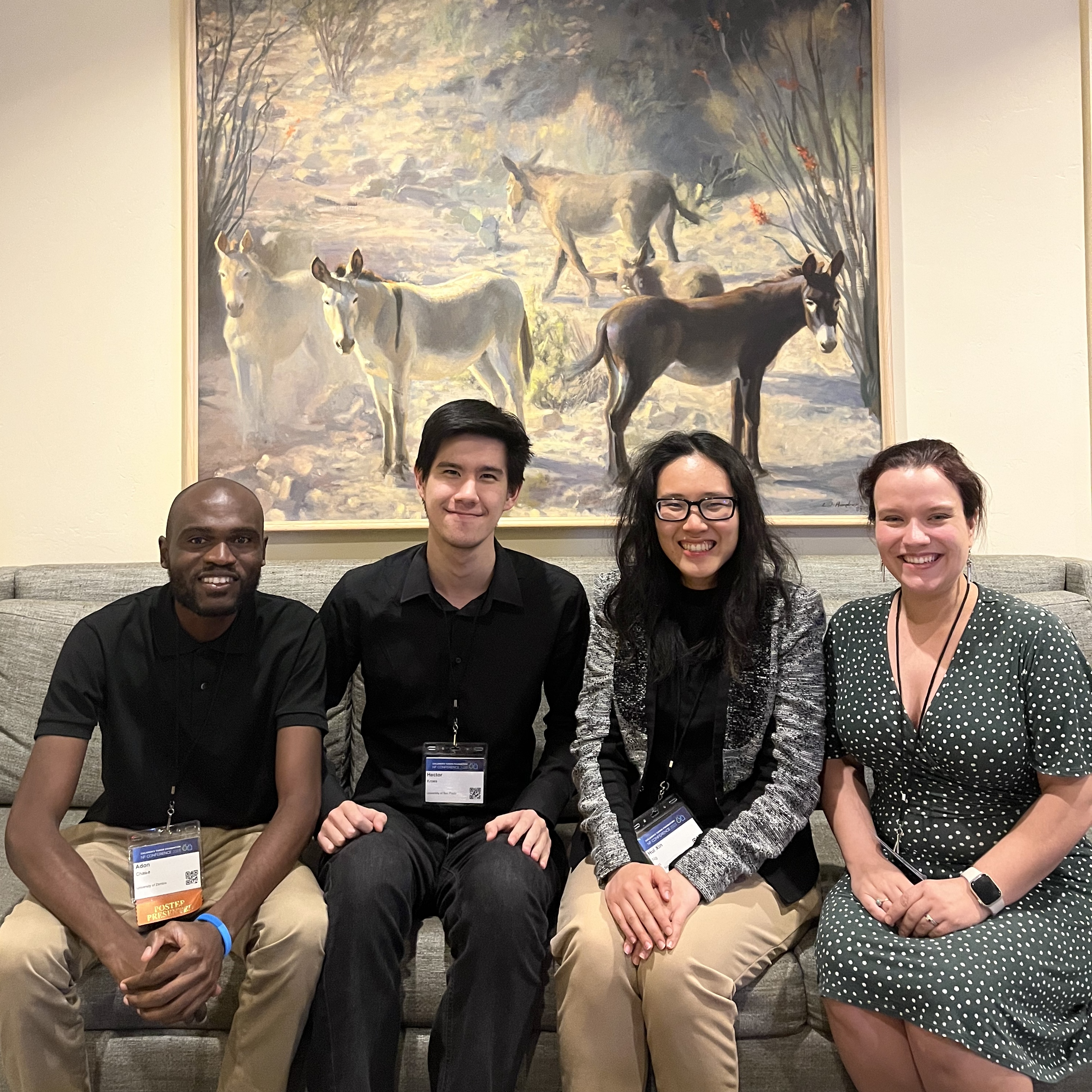[This article has been reprinted with permission from SORC and Sage BioNetworks.)
The Children's Tumor Foundation (CTF) partnered with the Schwannomatosis Open Research Collaborative (SORC) to grant three travel awards to deserving researchers, so that they could attend the Annual NF Conference, held in June 2023, in Scottsdale, AZ. These awards recognized the researchers’ contributions to SORC, a community-based research project focused on performing comprehensive genomic analyses of publicly available schwannomatosis data to identify noncoding variants, coding variants in under-studied genes, or other genomic features that contribute to disease etiology and heterogeneity. The SORC travel grantees reflected on their experience at the 2023 NF Conference.
Adon Chawe is from Zambia, the home of Victoria Falls. He has a background in biomedical sciences, works in a clinical laboratory, and recently completed his undergraduate degree at the University of Zambia.
Hui Xin Ng is a graduate student in cognitive science studying brain aging and psychiatric disorders at the University of California, San Diego.
Hector Kroes is from São Paulo, Brazil and is a medical student at the University of São Paulo. All three award recipients joined SORC through a partnership with the Bioinformatics Research Network and have been active contributors to the project. They are interested in deepening their understanding of rare disease and in applying bioinformatics methods to real-world data. They also touted the project’s strong mentorship and the opportunity to contribute to an open science initiative. For both Adon and Hector, the 2023 NF Conference was also their first trip to the United States. All three awardees recently reflected on their experiences in Scottsdale. Answers have been edited for length and clarity.
What was your favorite part of the 2023 NF Conference?
Adon: My favorite part of the conference was meeting my teammates for the first time in person. We met online and we have always worked remotely, the conference made it possible for us to come together and share what we have been working on.
Hui Xin: My favorite session was ‘Tips and Tricks for Successful Drug Trials in Rare Disease’ – Dr. Wade Clapp provided an overview of the history of drug discovery and clinical trials for NF1, from how surgery was the only therapeutic modality with high rate of recurrence in 2010 to the FDA- approval of selumetinib in 2020. The development of a successful intervention within 10 years is remarkable and I believe this case study speaks to the importance of open science and fostering a culture of collaboration in science.
Hector: My favorite part of the event was the poster session. It gave us the opportunity to present our posters and connect with people who had valuable expertise, potential use cases, and different perspectives. I also thoroughly enjoyed the keynote lectures, and there was also the combined NF Conference – NF Summit dinner; it was such a beautiful moment that will undoubtedly continue to inspire me in the future.
What surprised you the most about the 2023 NF Conference?

Adon: What surprised me the most, wearing shorts at a conference, I guess it’s an American thing. I was really surprised. The other thing, I learnt that you don’t really need a master's degree to do a PhD in America, this has encouraged me to seek postgraduate studies in America.
Hui Xin: The most surprising aspect to me at the conference was the degree of collaboration I witnessed – this is the first time I had been to a conference where I felt all stakeholders were represented: patients, clinicians, drug developers and researchers.
Hector: The most surprising aspect for me was the overwhelmingly positive atmosphere of the event and witnessing the remarkable advances made possible through the collaborative efforts of the research community, patients, families, and institutions like the Children’s Tumor Foundation. It was truly a touching and deeply moving experience.
If you were to start a brand new NF research or clinical group, what would you want to focus on?
Adon: I would be interested in working on methods to do rare variant association studies in NF.
Hui Xin: If I were to start a brand new NF research group, I’d like to bring in my knowledge in psychiatry to study the impact of clinical interventions on social well-being in a heterogeneous disease such as NF1/2 or schwannomatosis. Patient centered interventions are key to accelerating the process of finding an effective and desirable therapeutic modality that also improves quality of life.
Hector: If I were to start a new NF research or clinical group, my focus would probably be on exploring the connections between multi-level omics, and how they relate to clinical manifestations and disease phenotypes in neurofibromatosis and schwannomatosis. Understanding these relationships could lead to personalized therapies and better diagnostic tools for patients.
What do you like to do outside of your work and academic pursuits?
Adon: I have a small garden that I tend to when I am not overwhelmed with work, I currently have tomatoes, spring onion, lettuce, and strawberries. I have also recently developed an interest in Formula 1 racing, cheering for Red Bull racing. I also love space science. I watch a lot of videos on YouTube about space.
Hui Xin: Outside of my academic pursuits, I like learning new languages. One of my favorite pastimes is listening to language-learning podcasts while commuting on the bus. I’ve dabbled in French, Vietnamese and Japanese but my current focus is Korean. Learning languages has opened up many opportunities for me to understand diverse perspectives embedded in media across the world.
Hector: I enjoy swimming, playing board games with friends, reading fiction and non-fiction books, discovering new music I like, and maintaining my mineral collection.
Congratulations again to all three awardees!

